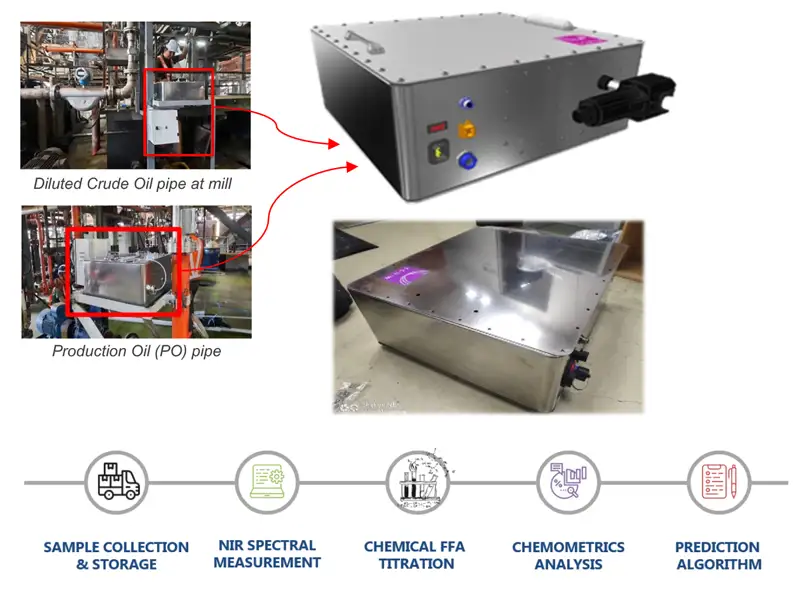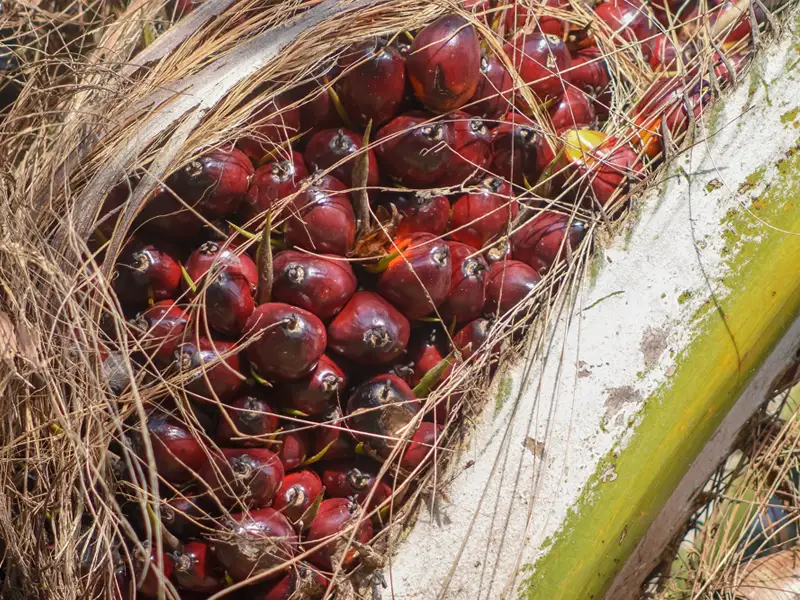Premium palm oil is known to prevent cancer, brain disease, ageing, and high blood pressure among consumers as it contains tocotrienols, a unique form of Vitamin E, that is known to support brain and heart health.
Indonesia and Malaysia are the major producers, with 83% of the world’s palm oil coming from these countries (59% from Indonesia and 24% from Malaysia)*. While Indonesia dominates the palm oil export market, Malaysia stands out for its sustainable palm oil production efforts.
To promote sustainability in the industry, Malaysia introduced the Malaysian Sustainable Palm Oil (MSPO) certificate scheme, overseen by the Malaysian Palm Oil Certification Council (MPOCC). This scheme ensures that palm oil producers adhere to environmental, social, and economic standards. The goal is to protect the environment and improve the economic well-being of those involved in palm oil production. Malaysia’s commitment to sustainability in palm oil sets a positive example for others to follow.
 INSPECTRA assures high-quality palm oil
INSPECTRA assures high-quality palm oil
In line with MSPO’s sustainability goals, MIMOS developed INSPECTRA, also known as the Inline NIR Spectroscopy Analyser, which plays a crucial role in ensuring the high-quality production of crude palm oil.
By harnessing the power of near-infrared (NIR) spectroscopy technology and clever chemometrics modelling for real-time analysis, INSPECTRA swiftly and accurately assesses the palm oil’s quality at various stages, from sample collection to storage, NIR spectral measurement, chemical FFA titration, and chemometrics analysis. This useful tool also employs a prediction algorithm that continually gathers and refines data, enhancing the reliability and accuracy of the datasets.
The prediction model, equipped with predetermined quality benchmarks, serves as a guide ensuring that palm oil production strictly complies with essential standards. This meticulous oversight guarantees adherence to the necessary production criteria, promoting sustainability and responsible practices within the industry.
Moreover, its interactive data visualisation features revolutionise palm oil plantation management. These capabilities provide a comprehensive and user-friendly interface, empowering plantation managers to make informed decisions promptly. By leveraging real-time data, this tool facilitates precise and disciplined management strategies, optimising resource allocation and enhancing operational efficiency.
Significantly, the model’s emphasis on reducing environmental risk marks a pivotal advantage. Its functionality aids in identifying and mitigating potential threats to the environment associated with palm oil cultivation. Incorporating sustainability measures and strategic planning, enables a proactive approach to minimise ecological impact, ensuring a more eco-friendly and sustainable production process.
In summary, the prediction model’s integration of predefined quality benchmarks, interactive data visualisation, and environmental risk reduction capabilities collectively elevate palm oil production standards. This comprehensive approach not only ensures adherence to quality parameters but also fosters responsible management practices that prioritise environmental preservation and sustainability.

INSPECTRA supports the sustainable production of palm oil
Integrating MIMOS’ INSPECTRA technology into palm oil production processes at palm oil mills presents a myriad of advantages. This cutting-edge technology offers significant reductions in manual labour needs, waste generation, operational expenses, and production duration. INSPECTRA’s impact on sustainability is multifaceted, aligning seamlessly with the core tenets of Industry 4.0 (IR4.0).
The foremost aim revolves around minimising reliance on manual labour while fostering the seamless integration of machine operations empowered by artificial intelligence (AI). By leveraging INSPECTRA, palm oil production not only streamlines its processes but also fortifies its commitment to sustainable practices, efficiency, and technological advancements synonymous with the Industry 4.0 paradigm.
INSPECTRA was developed by MIMOS to utilise near-infrared (NIR) spectroscopy, an analytical technique that employs near-infrared radiation to analyse samples for their composition and characteristic traits. This method requires minimal sample preparation for calibration purposes, proving to be cost-effective and capable of analysing flowing samples in real time with a high degree of accuracy. Notably, it avoids the use of harmful chemicals in the sample analysis process, aligning with the goal of promoting sustainable practices.
The incorporation of chemometric data analysis and prediction models in INSPECTRA enables real-time quality control and prediction for crude palm oil (CPO) classification and quantification. This not only simplifies the working environment but also facilitates the move toward dark factories, or lights-out factories, further enhancing efficiency and reducing resource consumption.
In terms of sustainable production, INSPECTRA aligns with the principles of creating goods and services using processes that are non-polluting, energy-conserving, and economically viable. Its role in reducing energy and resource consumption contributes to the overarching goal of sustainable palm oil production.
Moreover, INSPECTRA stands out from traditional methods of quality analysis. By adopting a chemometric approach and utilising NIR spectroscopy, it provides simultaneous results for multiple parameters, ensuring a comprehensive and efficient analysis. This stark difference highlights the benefits of INSPECTRA, including enhanced accuracy, reduced environmental impact, and increased efficiency.
The implementation of MIMOS’ INSPECTRA not only benefits palm oil mills by streamlining production processes but also contributes to broader sustainability efforts. It aligns with the standards set by the Roundtable on Sustainable Palm Oil (RSPO) and MSPO leading to the issuance of sustainability certificates. These certificates serve as a testament to the commitment of producers towards technology that promotes sustainable practices in the palm oil industry, fostering consumer trust and supporting the broader goals of sustainable development.
Source:




